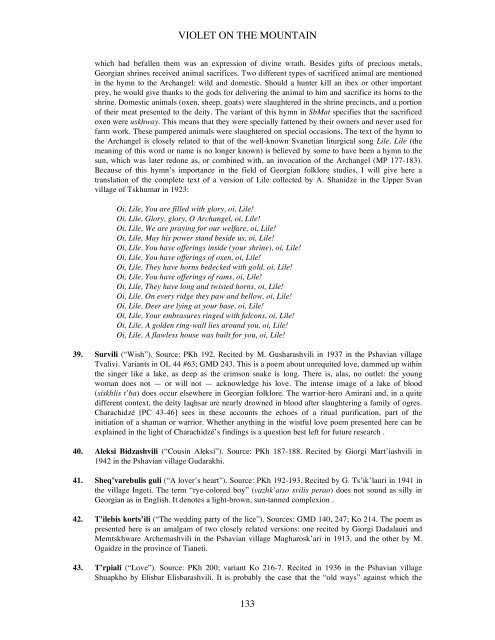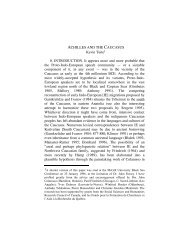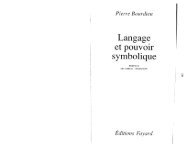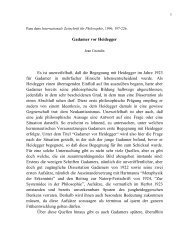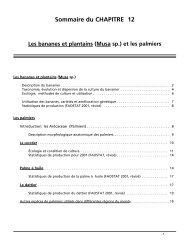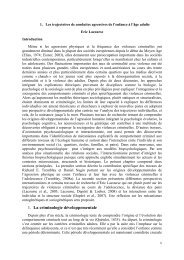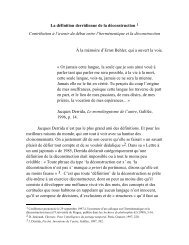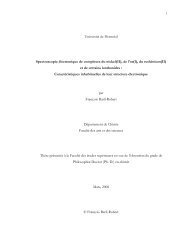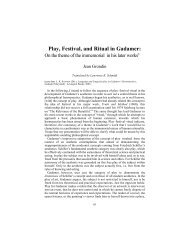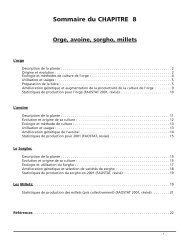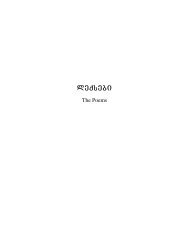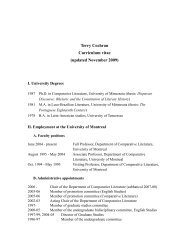You also want an ePaper? Increase the reach of your titles
YUMPU automatically turns print PDFs into web optimized ePapers that Google loves.
VIOLET ON THE MOUNTAIN<br />
which had befallen them was an expression of divine wrath. Besides gifts of precious metals,<br />
Georgian shrines received animal sacrifices. Two different types of sacrificed animal are mentioned<br />
in the hymn to the Archangel: wild and domestic. Should a hunter kill an ibex or other important<br />
prey, he would give thanks to the gods for delivering the animal to him and sacrifice its horns to the<br />
shrine. Domestic animals (oxen, sheep, goats) were slaughtered in the shrine precincts, and a portion<br />
of their meat presented to the deity. The variant of this hymn in SbMat specifies that the sacrificed<br />
oxen were uskhway. This means that they were specially fattened by their owners and never used for<br />
farm work. These pampered animals were slaughtered on special occasions. The text of the hymn to<br />
the Archangel is closely related to that of the well-known Svanetian liturgical song Lile. Lile (the<br />
meaning of this word or name is no longer known) is believed by some to have been a hymn to the<br />
sun, which was later redone as, or combined with, an invocation of the Archangel (MP 177-183).<br />
Because of this hymn’s importance in the field of Georgian folklore studies, I will give here a<br />
translation of the complete text of a version of Lile collected by A. Shanidze in the Upper Svan<br />
village of Tskhumar in 1923:<br />
Oi, Lile, You are filled with glory, oi, Lile!<br />
Oi, Lile, Glory, glory, O Archangel, oi, Lile!<br />
Oi, Lile, We are praying for our welfare, oi, Lile!<br />
Oi, Lile, May his power stand beside us, oi, Lile!<br />
Oi, Lile, You have offerings inside (your shrine), oi, Lile!<br />
Oi, Lile, You have offerings of oxen, oi, Lile!<br />
Oi, Lile, They have horns bedecked with gold, oi, Lile!<br />
Oi, Lile, You have offerings of rams, oi, Lile!<br />
Oi, Lile, They have long and twisted horns, oi, Lile!<br />
Oi, Lile, On every ridge they paw and bellow, oi, Lile!<br />
Oi, Lile, Deer are lying at your base, oi, Lile!<br />
Oi, Lile, Your embrasures ringed with falcons, oi, Lile!<br />
Oi, Lile, A golden ring-wall lies around you, oi, Lile!<br />
Oi, Lile, A flawless house was built for you, oi, Lile!<br />
39. Survili (“Wish”). Source: PKh 192. Recited by M. Gusharashvili in 1937 in the Pshavian village<br />
Tvalivi. Variants in OL 44 #63; GMD 243. This is a poem about unrequited love, dammed up within<br />
the singer like a lake, as deep as the crimson snake is long. There is, alas, no outlet: the young<br />
woman does not — or will not — acknowledge his love. The intense image of a lake of blood<br />
(siskhlis t’ba) does occur elsewhere in Georgian folklore. The warrior-hero Amirani and, in a quite<br />
different context, the deity Iaqhsar are nearly drowned in blood after slaughtering a family of ogres.<br />
Charachidzé [PC 43-46] sees in these accounts the echoes of a ritual purification, part of the<br />
initiation of a shaman or warrior. Whether anything in the wistful love poem presented here can be<br />
explained in the light of Charachidzé’s findings is a question best left for future research .<br />
40. Aleksi Bidzashvili (“Cousin Aleksi”). Source: PKh 187-188. Recited by Giorgi Mart’iashvili in<br />
1942 in the Pshavian village Gudarakhi.<br />
41. Sheq’varebulis guli (“A lover’s heart”). Source: PKh 192-193. Recited by G. Ts’ik’lauri in 1941 in<br />
the village Ingeti. The term “rye-colored boy” (vazhk’atso svilis perao) does not sound as silly in<br />
Georgian as in English. It denotes a light-brown, sun-tanned complexion .<br />
42. T’ilebis korts’ili (“The wedding party of the lice”). Sources: GMD 140, 247; Ko 214. The poem as<br />
presented here is an amalgam of two closely related versions: one recited by Giorgi Dadalauri and<br />
Memtskhware Archemashvili in the Pshavian village Magharosk’ari in 1913, and the other by M.<br />
Ogaidze in the province of Tianeti.<br />
43. T’rpiali (“Love”). Source: PKh 200; variant Ko 216-7. Recited in 1936 in the Pshavian village<br />
Shuapkho by Elisbar Elisbarashvili. It is probably the case that the “old ways” against which the<br />
133


